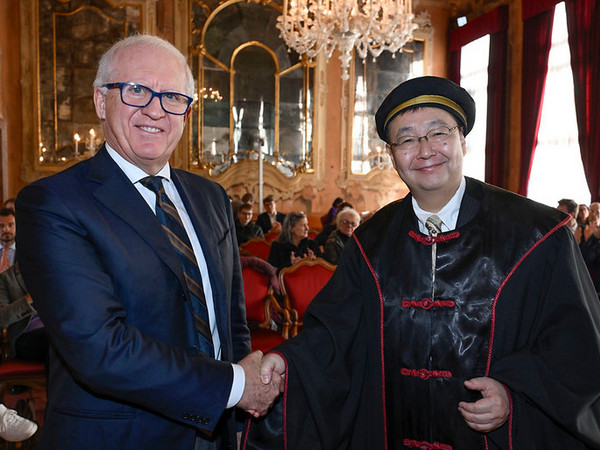The number of workers who are asked to carry out their work in another EU Member State for a limited period of time is increasing dramatically. There were 2.3 million postings in 2016, an increase of 50% compared to 2011.
A research presented last week at Ca’ Foscari shows how the posting of workers often hides social dumping strategies in 9 EU Member States including Italy.
Workers receive the wage of their country of origin which can be 30% lower than wages in the host country. Labour cost-cutting strategies involving the posting of workers have become increasingly common, especially in the construction sector (45% of the postings), in industrial activities (24%) and for the provision of certain services (such as transportation, 29%) in which labour costs represent the largest share of the firms’ expenses.
“Even though this phenomenon is extremely relevant it is still not known to the general public and to social partners, labour inspectors and consultants - Fabio Perocco, sociology professor at Ca’ Foscari University of Venice, explained. - Considering the two current contradictory trends of unification and segmentation within the global labour market, the posting of workers appears to be the result of processes causing instability of the labour market and of migrations. In this sort of hidden migration posted workers are not well integrated and hence invisible, not supported by any system of work relations, isolated and thus vulnerable with regards to their employers; they benefit very little from local services and are not unionized. Therefore their social rights are not always recognized - from wage levels to working hours, from accidents at the workplace to social security”.
In Italy many instances confirm the use of posted workers as an incentive for social dumping: in Milan the trade union Filca-CISL reported the case of a Romanian company employing 25 Romanian workers with a gross wage between 110 and 176 euros per week (i.e. 2.75 - 4.4 euros per hour), but presenting a monthly payslip of 2,100 euros.
In the post-earthquake construction sites in L'Aquila, the trade union Fillea-CGIL Abruzzo found companies that used the excuse of posting workers to possibly proceed with illegal intermediation or labour exploitation. In the road transport sector, letterbox companies were opening - i.e. branches created to hire foreign workers and benefit from the differences in contribution levels to lower labour costs.
One of the most significant cases regards a multinational company based in Italy which hired foreign and Italian workers through its Polish branch after winning a very significant contract in Sardinia. The Italian workers were offered a contract based in Poland that declared ‘For any issue that is not mentioned in this contract, the Polish labor law will apply’ and ‘Any labour dispute will be dealt with by a Labour Court in Poland’.
Ca’ Foscari University of Venice has presented these results at the final conference of the Poosh research project funded by the European Commission in collaboration with the Slovenian Academy of Science and Arts, the European Centre for Social Welfare Policy and Research (Austria), the National University of Political Studies and Public Administration (Romania), and the University of Rostock (Germany).
Posting of workers in the European Union
There are three types of posting: Within the same company, from branches located in different EU member States within transnational procurement contracts; through temporary employment agencies. Posting of workers within the EU is regulated by European Directives (Directive 1996/71/EC, Directive 2014/67/EU, Directive 2018/957/EU) which establish working conditions including wage levels which should be based on the minimum standards of the host country whereas social contributions should be based on the country where the headquarters of the company that sends posted workers are located.
Many studies have found that posting has been used as an incentive for social dumping because of the differences between the minimum wages and the average wage in the host country and of the social contribution and taxation systems of the country of origin and of the host country - in particular in Eastern Europe where the contribution and taxation levels are much lower than in Western Europe.
Data
Data on posting shows that most posted workers come from the new member States in Eastern Europe and increasingly in the last years from Southern Europe. The host Member States are mostly located in Central and Northern Europe.
In 2016, Poland issued 260,000 portable documents A1, followed by Germany (218,000 PDs A1), Slovenia (150,000 PDs A1), France (132,000 PDs A1), Italy (106,000 PDs A1) and Spain (100,000 PDs A1). The host countries that received more workers were Germany (440,000 PDs A1), France (203,000 PDs A1), Belgium (178,000 PDs A1), Austria (120,000 PDs A1) and Switzerland (104,000 PDs A1).











